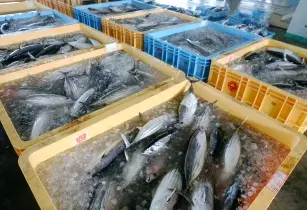On 9 May, government officials, fish industry captains, civil society and private sector representatives gathered in Harare to begin consultations on the first of its kind legislation described as an economic milestone to bolster the development and sustainability of Zimbabwe’s fisheries and aquaculture industry
Strengthening the legal framework is part of Zimbabwe’s efforts to develop its nascent aquaculture sector and transform it into a driver of economic growth and source of employment. The fisheries bill would be the first of its kind and is described as a milestone of great economic importance that could pave way for investments in the sector. This endeavour is in line with the government thrust of streamlining legislation and improving the ease of doing business in Zimbabwe.
Provisions in the current legal framework on fisheries and aquaculture are scattered and there is an urgent need to unify legislation in one Act canvassing the sector provisions while promoting sustainable development of the industry. An assessment of Zimbabwe’s tilapia sector to identify challenges restricting growth and formulating an upgrading strategy, conducted by FISH4ACP and the Chinhoyi University of Technology between 2021 and 2022 also found that the legal framework was a key issue for improvement.
More than 40 Government officials, fish industry captains, civil society, private sector gathered in Harare for the Fisheries and Aquaculture Bill Consultations Inception Meeting. The objective of the meeting was to discuss the framework for developing the fisheries and aquatic resources bill, while also building consensus among stakeholders on the process of developing the bill. The participants agreed on a roadmap for a consultative process involving stakeholders across the sector. A team of legal experts from the legal division of the attorney general’s office and the FAO’s legal division will assist in collecting views and compiling the draft bill, prior to validation by the stakeholders.
By the end of 2023, the bill will eventually be considered for debate in the parliament and ascension to law.





